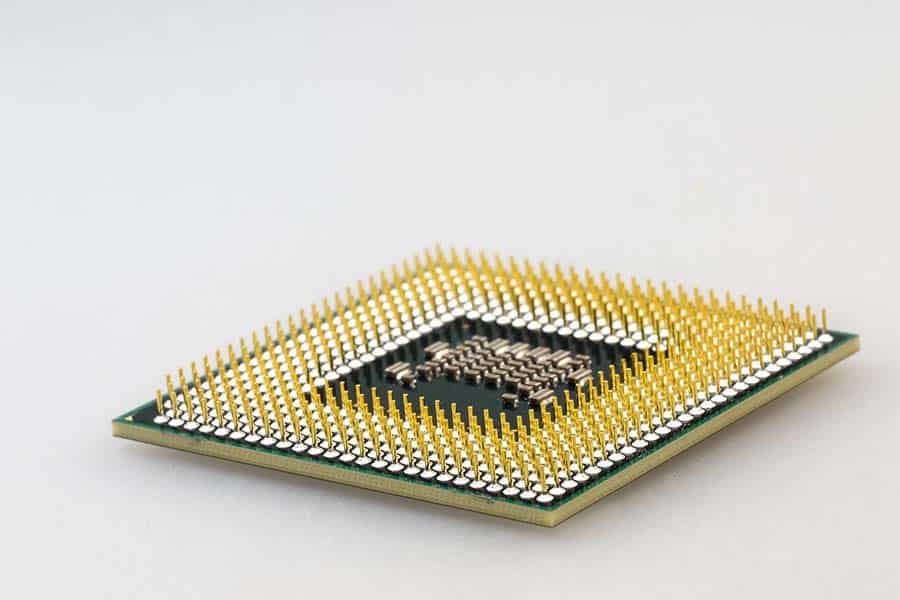Geeks love to tinker and experiment, putting their gadgets through their paces and discovering all the cool things they can do. Laptops are no different, but upgrading your laptop’s CPU might seem like an uphill task; after all, replacing the hardware on a laptop is not as simple as adding memory or storage. However, it IS possible to upgrade your laptop’s CPU.it just takes some persistence and willingness to get a little messy! Laptops are one of the few devices that come with fixed hardware components. While desktops typically have user-accessible RAM slots, drive bays for secondary storage, and even sockets for CPU upgrades. Laptops are generally sold as complete units with user-replaceable batteries and unchangeable hardware components. So how do you upgrade your laptop’s CPU? Let’s find out.
Can you upgrade the CPU in the laptop?
An old laptop that is still operational can be upgraded by replacing its main components. This includes the replacement of its hard disk with a solid state disk (SSD) and the replacement of the laptop’s motherboard with a newer model that contains a more powerful central processing unit (CPU) and memory. However, the latter also entails upgrading the laptop’s graphics processing unit (GPU).
Why Would You Want To Upgrade Your Laptop’s CPU?
1. To Upgrade the Speed of Your Laptop
The majority of laptops sold today come with a CPU that is not very powerful. This means that your laptop will perform at a snail’s pace. Even if you have been using your laptop for years, it might be time to upgrade its CPU. A powerful CPU will enhance the performance and speed of your laptop.
2. To Boost Your Laptop’s Battery Life
A fast-running processor uses more power than a slow one and this can drain the battery of your laptop faster than you would like. The CPU is responsible for much of the computational work on a PC and it runs while other parts are sleeping. A powerful CPU will boost the battery life of your laptop by making it possible for it to run faster without draining its charge as quickly as before.
3. To Upgrade Your Laptop’s Graphics Processing Unit (GPU)
The graphics processing unit (GPU) is a chip that handles the graphical life of your laptop.
4. To Increase Your Laptop’s Security
A powerful CPU will help keep your laptop safe from viruses and malware. A slow CPU might not be able to detect a virus or malware as quickly as a powerful processor can. If you are worried about security, upgrading your CPU is a good idea.
5. To Upgrade the Graphics Processing Unit (GPU) in Your Laptop
A powerful GPU will boost the graphics performance of your laptop and make it more capable of gaming and video editing work, among other things. A fast GPU is also useful for projects that involve 3D rendering and rendering photos or videos in real time.
How To Upgrade Your Laptop’s CPU?
Decide Which Processor You Want To Upgrade To
The very first thing you need to do is decide which processor you want to upgrade to. Of course, you could just swap out your current CPU entirely and replace it with a new one, but there are several things to consider before you make that decision. First, you need to consider the type of laptop that you have. For example, if you have a gaming laptop, you will likely have a smaller, thinner case that doesn’t allow for full-size desktop hardware. Next, you need to consider the amount of power you need from your laptop. If you’re just using it for everyday tasks, like sending emails and watching videos, then there’s no need to upgrade. However, if you are using it for more intensive processes, you may find that your laptop starts to struggle.
Buy The Right CPU For Your Laptop
Once you have decided which processor you want to upgrade to, you need to buy it. What you need to consider here is whether to buy a new CPU or to buy a new motherboard that can support the new CPU. If you are looking for a processor upgrade for your gaming laptop, then you will have to buy a new motherboard – as most gaming laptops don’t allow you to swap out the CPU. If you want to upgrade a regular laptop, you can buy a new CPU and put it into your existing motherboard. Let’s say that you have an old laptop that runs really slowly and want to upgrade the CPU to fix it. You might want to upgrade to a new Intel Core i7 processor.
Install Your New Cpu
Once you’ve purchased your new CPU, you will need to fit it into your laptop. Let’s say that you are changing out the CPU in an HP laptop with a Core i7-7500u processor. You will first need to remove the existing motherboard from the chassis, and then remove the heatsink and fan that are attached to the motherboard. Once you have removed the old CPU, you will then need to install your new CPU.
BIOS And Firmware Updates
Once you have installed your new CPU, you will need to update your laptop’s BIOS and firmware. Once you have installed your new CPU, you will need to make sure that your laptop is configured to run it. Once you have updated your BIOS and firmware, you can boot into your laptop and start using it.
Test Out Your New Cpu
After you have installed your new CPU, you will want to test it out to make sure everything is working correctly. Most importantly, you will want to make sure that your laptop is running at the right speed. You will also want to check your laptop’s CPU temperature to make sure that it isn’t running too hot.
Where To Find New Parts For Your Laptop?
1. Laptop Parts Supplier
If you want to find out where to buy replacement parts for a Laptop, then here is the place for you. If you want to buy replacement parts then you can go to the laptop parts supplier and select the model of your Laptop and then choose your model parts.
2. Laptop Repair Store
If you want to know more about laptop repair stores, then this is also the right place for you. The laptop repair store will give you complete information about all kinds of laptop repairs and they will help with all types of issues with your laptops.
3. Local Laptop Repair Shops
If you want to know more about local laptop repair shops, then you can go to the local Laptop Repair shops. If you want all types of information about the laptop, then the local laptop repair shops will give you complete information about all types of laptops and they will help with all types of issues with your laptops.
4. Laptop Repair Centers
If you want to know more about laptop repair centers, then you can go to the laptop repair center. If you want all types of information about the laptop, then the laptop repair centers will give you complete information about all types of laptops and they will help with all types of issues with your laptops.
5. Laptop Repair Centers In Your City
You can also find out more about local Laptop repair centers in your city by going to the local Laptop Repair centers in your city or country. If you want all types of information about the laptop, then the local Laptop repair centers will give you complete information about all types of laptops and they will help with all types of issues with your laptops.
Bottom Line
Laptops are designed to be portable and reliable, which means that they often lack the modular hardware that is so common on desktops. That doesn’t mean you can’t upgrade your laptop’s CPU, but it does mean that you need to be careful when doing so. Before you start, make sure that your laptop can support the new chip you have in mind. When you’re ready to upgrade your CPU, it’s important to make sure that your laptop’s cooling system is in good condition.


